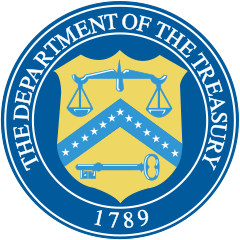On July 31, the U.S. Treasury sanctioned Iranian Foreign Minister Mohammad Javad Zarif for acting on behalf of Supreme Leader Ayatollah Ali Khamenei. The United States had already designated Khamenei on June 24. The Treasury accused Zarif of implementing the regime’s “reckless agenda” by disseminating its propaganda throughout the world. In a statement, Secretary of State Mike Pompeo said, "Iran’s Foreign Ministry is not merely the diplomatic arm of the Islamic Republic but also a means of advancing many of the Supreme Leader’s destabilizing policies."
The US' reason for designating me is that I am Iran's "primary spokesperson around the world"
— Javad Zarif (@JZarif) July 31, 2019
Is the truth really that painful?
It has no effect on me or my family, as I have no property or interests outside of Iran.
Thank you for considering me such a huge threat to your agenda.
The European Union rejected the U.S. designation and vowed to maintain its relationship with Zarif. “We will continue to work with Mr. Zarif, as Iran’s most senior diplomat, and in view of the importance of maintaining diplomatic channels,” said European Commission spokesman Carlos Martin Ruiz de Gordejuela. It was unclear whether Zarif’s designation would prevent him from attending the U.N. General Assembly scheduled for September in New York. A senior administration official told CNN that the State Department would "evaluate specific circumstances related to this designated on a case-by-case basis consistent with existing laws." The following are press statements from Treasury and the State Department.
U.S. State Department Sanctions Announcement
On June 24, 2019, President Trump issued Executive Order 13876 imposing sanctions on the Supreme Leader of the Islamic Republic of Iran Ali Husseini Khamenei and the Supreme Leader’s Office, and authorizing sanctions on others associated with the Supreme Leader. Today, the United States designated the Iranian regime’s Foreign Minister, Mohammad Javad Zarif, who has acted on behalf of the Supreme Leader.
Iran’s Foreign Ministry is not merely the diplomatic arm of the Islamic Republic but also a means of advancing many of the Supreme Leader’s destabilizing policies. Foreign Minister Zarif and the Foreign Ministry he runs take their direction from the Supreme Leader and his office. Foreign Minister Zarif is a key enabler of Ayatollah Khamenei’s policies throughout the region and around the world. The designation of Javad Zarif today reflects this reality.
This action represents another step toward denying the Iranian regime the resources to enable terror and oppress the Iranian people. Instead of using Iran’s precious resources to invest in the brave and rightfully proud people of Iran, the Iranian regime facilitates and supports terrorism, jails and tortures innocent Iranians, fuels foreign conflicts in Syria and Yemen, and, in recent weeks, has expanded its nuclear program. Foreign Minister Zarif, a senior regime official and apologist, has for years now been complicit in these malign activities.
The United States continues to seek a diplomatic solution that addresses the Iranian regime’s destructive behavior. The only path forward is a comprehensive deal that addresses the full range of its threats. Until then, our campaign of diplomatic isolation and maximum economic pressure will continue.
U.S. Treasury Press Release
 The U.S. Department of the Treasury’s Office of Foreign Assets Control (OFAC) took action today against the Iranian regime’s Foreign Minister, Mohammad Javad Zarif (Javad Zarif), pursuant to Executive Order (E.O.) 13876 because Zarif acted or purported to act for or on behalf of, directly or indirectly, the Supreme Leader of the Islamic Republic of Iran.
The U.S. Department of the Treasury’s Office of Foreign Assets Control (OFAC) took action today against the Iranian regime’s Foreign Minister, Mohammad Javad Zarif (Javad Zarif), pursuant to Executive Order (E.O.) 13876 because Zarif acted or purported to act for or on behalf of, directly or indirectly, the Supreme Leader of the Islamic Republic of Iran.
On June 24, 2019, the President issued E.O. 13876 imposing sanctions on the Supreme Leader of the Islamic Republic of Iran and the Supreme Leader’s Office (SLO), and authorizing sanctions on others associated with the Supreme Leader or the SLO. Concurrently, Treasury added the Supreme Leader of Iran, Ali Husseini Khamenei, to OFAC’s List of Specially Designated Nationals and Blocked Persons (SDN List) under this new authority.
“Javad Zarif implements the reckless agenda of Iran’s Supreme Leader, and is the regime’s primary spokesperson around the world. The United States is sending a clear message to the Iranian regime that its recent behavior is completely unacceptable,” said Treasury Secretary Steven T. Mnuchin. “At the same time the Iranian regime denies Iranian citizens’ access to social media, Foreign Minister Javad Zarif spreads the regime’s propaganda and disinformation around the world through these mediums.”
While OFAC is taking today’s action against Zarif under E.O. 13876, this new authority, additional information indicates that Javad Zarif oversees a foreign ministry that has coordinated with one of the Iranian regime’s most nefarious state entities, the IRGC-Qods Force (IRGC-QF), which is designated pursuant to terrorism and human rights authorities. Zarif’s Ministry of Foreign Affairs and its high ranking officials have engaged in and funded efforts to influence elections, some of which have involved the IRGC-QF. Additionally, senior officials of Iran’s Ministry of Foreign Affairs sought to facilitate the release of two IRGC-QF operatives from a foreign country by making payments to foreign judiciary officials.
Sanctions Implications
All property and interests in property of this individual that are in the United States or in the possession or control of U.S. persons must be blocked and reported to OFAC. OFAC’s regulations generally prohibit all dealings by U.S. persons or within (or transiting) the United States that involve any property or interests in property of blocked or designated persons.
In addition, persons that engage in certain transactions with the individual designated today may themselves be exposed to designation. Furthermore, any foreign financial institution that knowingly conducts or facilitates a significant transaction for or on behalf of the individual designated today could be subject to U.S. correspondent account or payable-through sanctions.
